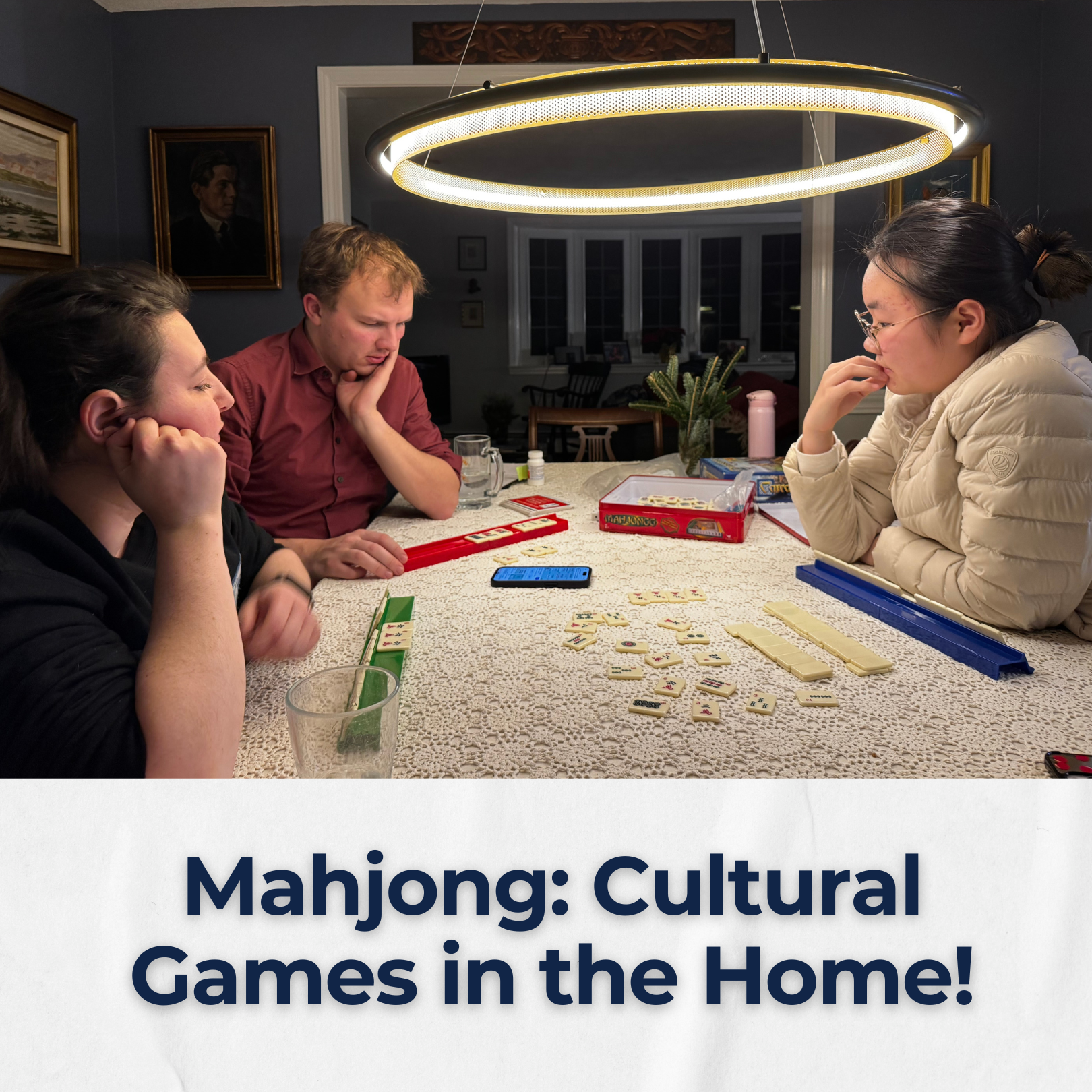Hosting an international student is a wonderful opportunity to learn about different cultures, traditions, and even games! One way to build a meaningful connection is by introducing games that are popular in their home country. Mahjong, a game deeply rooted in Chinese culture, is a fantastic option that provides both entertainment and a chance to bond. In this blog, we’ll explore how to play mahjong and how host families can incorporate it into their home life. We’ll also suggest other cultural games for students from different backgrounds.
What is Mahjong?
Mahjong is a tile-based game that originated in China over a thousand years ago. It is commonly played among family and friends and is an excellent way to engage with Chinese culture. The game is often played with four players and involves strategy, skill, and a bit of luck. It is similar in some ways to rummy, as players work to create sets and sequences of tiles to form a winning hand.
How to Play Mahjong
While mahjong has many regional variations, the most common version played internationally is the Cantonese (Hong Kong-style) mahjong. Here’s a simple breakdown of the game:
- The Tiles – The game consists of 144 tiles divided into three suits: Characters, Bamboos, and Circles. There are also Honor tiles (Winds and Dragons) and Bonus tiles (Flowers and Seasons).
- The Goal – Players aim to create a complete hand of four sets (melds) and one pair.
- The Setup – Players shuffle the tiles and build a “wall” before drawing their starting hand.
- Gameplay – Players take turns drawing and discarding tiles, attempting to complete their hand.
- Winning – A player wins by forming a complete hand and calling “Mahjong!”
Where to Buy Mahjong
If you’re interested in purchasing a mahjong set, you can find them at:
- Amazon – Offers a variety of sets, including beginner-friendly and travel versions.
- Walmart & Target – Some locations carry mahjong sets, especially around the holiday season.
- Local Game Stores – Specialty board game shops may carry mahjong sets and accessories.
- Chinese Markets & Stores – Many Asian supermarkets and specialty stores have authentic mahjong sets.
- Online Specialty Stores – Websites like Yellow Mountain Imports specialize in traditional Asian games.
How Hosts Can Incorporate Mahjong
- Introduce It as a Fun Family Game Night – Learn the game together with your student and make it a regular activity.
- Use It as a Learning Opportunity – Discuss the cultural significance of mahjong in China and its role in social gatherings.
- Invite Friends Over for a Game Night – Encourage your student to invite their friends and create a welcoming space for cultural exchange.
- Start with a Simplified Version – If the full game feels overwhelming, try a digital version or a simplified version with fewer rules.
Other Cultural Games to Explore
Not all international students may be familiar with mahjong, but there are many traditional games from different cultures that hosts can introduce. Here are a few:
- Japan – Shogi: Often called Japanese chess, Shogi is a strategic board game played on a 9×9 grid.
- South Korea – Yut Nori: A traditional Korean board game played with sticks instead of dice, commonly enjoyed during the Lunar New Year.
- Vietnam – Ô Ăn Quan: A traditional Vietnamese game similar to mancala, focusing on collecting and redistributing small objects.
- India – Carrom: A tabletop game where players use a striker to flick disks into corner pockets.
- Europe – Chess or Backgammon: Many European students may be familiar with these games, which have long histories of strategy and skill.
Incorporating cultural games like mahjong into your household is an enriching way to bond with your international student. Not only does it provide a fun activity, but it also allows for meaningful cultural exchange. If mahjong isn’t their game of choice, consider exploring other games from their home country. By embracing new traditions, host families can create an environment that makes their international student feel welcomed and valued. Happy gaming!
If you are interested in learning more about hosting an international student:
https://homestay.cambridgenetwork.com/become-a-host-parent/
Or email: [email protected]



